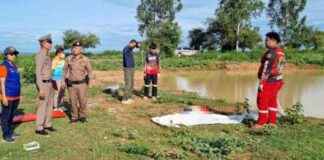Dam Collapse and Flooding in Sudan Claims Dozens of Lives
The devastating effects of war combined with the relentless rainy season have resulted in a tragic disaster in Sudan. According to a report by the Office for the Coordination of Humanitarian Affairs (OCHA), the country, which has been grappling with the aftermath of conflict, is now facing severe flooding that has caused widespread destruction and loss of life. The collapse of the Arbata Dam on Sunday has exacerbated the situation, leading to at least 30 confirmed fatalities and leaving many others missing or displaced.
The Arbata Dam, located approximately 38 kilometers northwest of Port Sudan, suffered significant damage, causing a breach that allowed water to inundate nearby towns and communities. The OCHA has estimated that up to 50,000 people residing in the western part of the dam’s vicinity have been severely impacted by the flooding. Reports indicate that around 70 villages near the Arbata Dam have been affected, with 20 of them sustaining considerable damage.
The Ministry of Health in Sudan revealed on Monday that since the beginning of the year, 132 people have lost their lives due to flooding and heavy rainfall in 10 states across the country. The worst-hit areas are in the northern states and along the Nile River. Sudan has been in a state of crisis since the escalation of conflict in April 2016 between the government forces led by President Abdel Fattah al-Burhan and the Rapid Support Forces (RSF) commanded by Mohamed Hamdan Dagalo. Both parties have been accused of committing atrocities and violating international law, as well as obstructing the delivery of much-needed aid to the country’s population, some of whom were already vulnerable due to the destruction of basic infrastructure before the war.
Impact on the Affected Communities
The sudden collapse of the Arbata Dam has had a catastrophic impact on the communities residing in its vicinity. With thousands of people displaced and infrastructure severely damaged, the survivors are left grappling with the aftermath of the disaster. The loss of lives, homes, and livelihoods has created a humanitarian crisis that requires immediate attention and support from both local and international organizations.
Local authorities in Sudan are struggling to provide assistance to the affected populations, as the scale of the disaster has overwhelmed their capacity. The lack of resources, coupled with the ongoing conflict in the region, has hindered rescue and relief efforts, leaving many vulnerable individuals without access to essential services such as clean water, food, and medical care. The situation is further exacerbated by the threat of waterborne diseases and the risk of further flooding in the coming weeks.
The displaced families are now seeking refuge in makeshift shelters or with relatives in less affected areas, but the conditions are far from ideal. The overcrowded living spaces, lack of sanitation facilities, and limited access to clean water pose a serious health risk, especially for children and the elderly. There is an urgent need for humanitarian aid to prevent a worsening of the situation and ensure the well-being of the affected communities.
Response and Recovery Efforts
In response to the unfolding crisis, local and international organizations have mobilized to provide assistance to the affected populations in Sudan. Emergency teams have been dispatched to the affected areas to assess the damage, distribute aid, and support the evacuation of vulnerable individuals. Medical teams are also on the ground to treat the injured and prevent the outbreak of diseases in the aftermath of the flooding.
The United Nations and other humanitarian agencies have launched appeals for funding to support the relief and recovery efforts in Sudan. The funds raised will be used to provide emergency shelter, food assistance, clean water, and medical supplies to the affected communities. Additionally, efforts are underway to restore basic infrastructure, such as roads, bridges, and power lines, to facilitate the delivery of aid and facilitate the recovery process.
Despite the challenges posed by the ongoing conflict and the limited resources available, the international community has shown solidarity with the people of Sudan in their time of need. Countries around the world have offered their support in the form of financial aid, technical assistance, and humanitarian relief supplies to help alleviate the suffering of the flood-affected populations. The collective response to this disaster underscores the importance of global cooperation in addressing humanitarian crises and building resilience in vulnerable communities.
In conclusion, the dam collapse and flooding in Sudan have resulted in a tragic loss of life and widespread devastation. The affected communities are in urgent need of assistance to survive the aftermath of the disaster and rebuild their lives. The response from local and international organizations is crucial in providing relief and support to those impacted by the crisis. As Sudan continues to grapple with the challenges of conflict and natural disasters, it is imperative that the international community remains committed to ensuring the well-being and resilience of the country’s population.




















